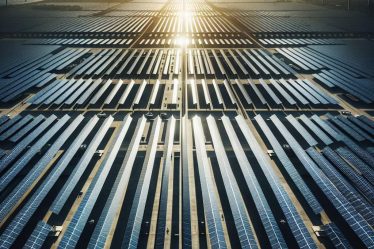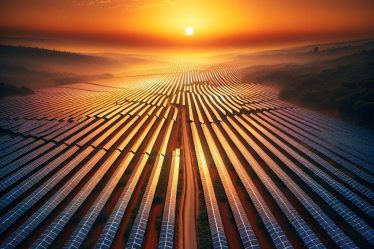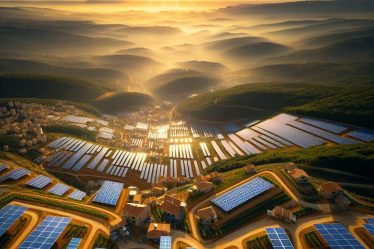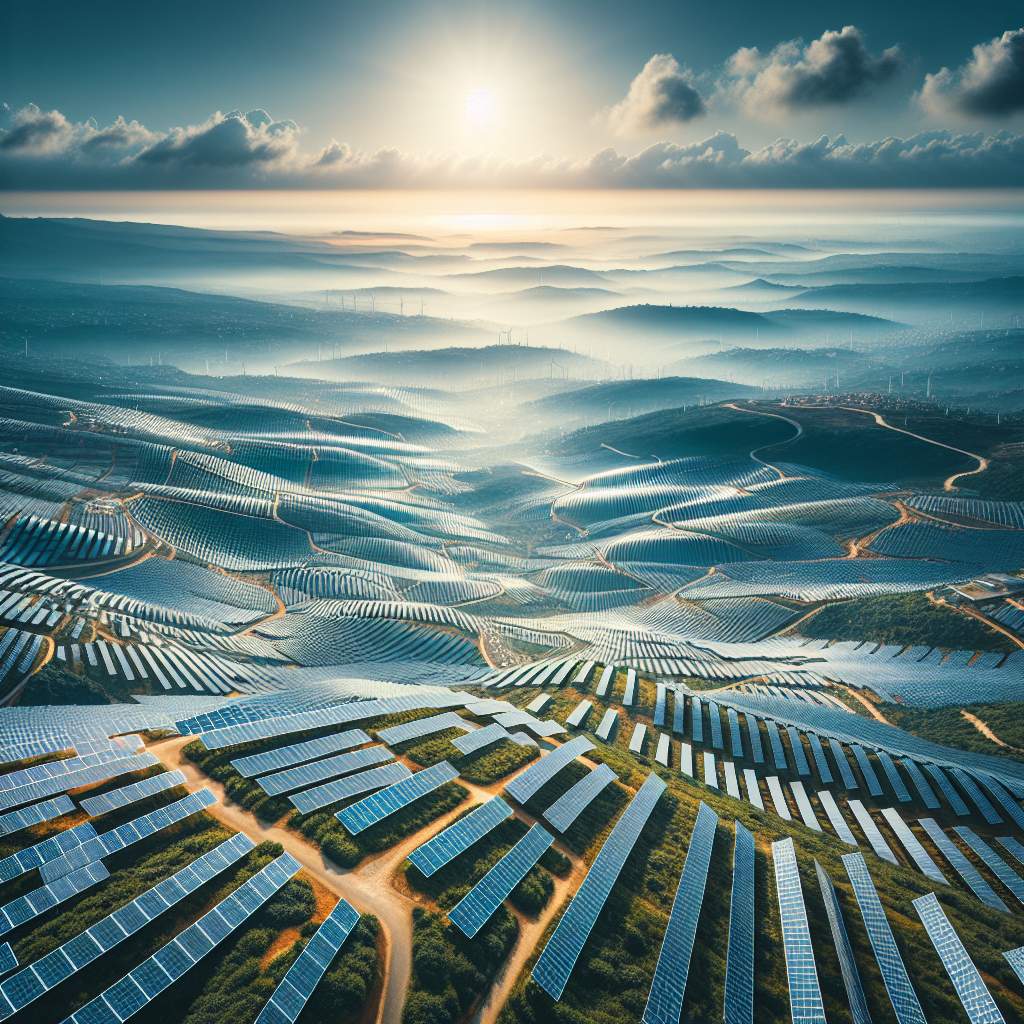
Lebanon’s solar power scene is really taking off! From the sun-soaked plains of the Bekaa Valley to the bustling streets of Beirut, solar energy installations are making their mark. It’s not just a drop in the ocean; these projects are really making waves. Let’s dive into the bright world of solar power in Lebanon and explore how it’s lighting up homes and businesses across the country. Get ready to soak up some rays as we shine a light on these major solar power installations that are changing Lebanon’s energy landscape!
Introduction to Solar Power in Lebanon
Lebanon is embracing solar power to tackle energy challenges. With over 80 megawatts of installed capacity, the country has made significant strides in harnessing renewable energy. The CEDRO project, for instance, has facilitated the development of solar farms across Lebanon. These initiatives not only reduce carbon emissions but also contribute to a more sustainable future for generations to come.
Major solar power installations in Lebanon have garnered attention globally, showcasing the nation’s commitment to clean energy. The Zouk Mosbeh Solar Power Plant, with its impressive capacity, stands as a testament to Lebanon’s dedication to a greener and more energy-independent tomorrow.
Current State of Solar Energy in Lebanon
Lebanon is making big strides in solar energy with major installations like the Deir Ammar Solar Power Plant and the Zahle Solar Park. These projects are helping to reduce reliance on fossil fuels and cut down greenhouse gas emissions. With a sunny climate, Lebanon has great potential for solar power, and these installations are just the beginning of a brighter, more sustainable future.
The Deir Ammar Solar Power Plant alone can power thousands of homes, while the Zahle Solar Park is also contributing significantly to the country’s renewable energy goals. As Lebanon continues to invest in solar power, it’s not only reducing its environmental impact but also creating new job opportunities and boosting economic growth. It’s an exciting time for solar energy in Lebanon!
Government Initiatives and Policies for Solar Power
Lebanon has been making strides in solar power, with the government implementing initiatives and policies to promote its use. The National Renewable Energy Action Plan aims to increase the share of renewable energy in Lebanon’s electricity mix to 12% by 2020. The plan also includes a net metering scheme, allowing solar power system owners to export excess electricity back to the grid. Additionally, the Ministry of Energy and Water offers subsidies for residential and commercial solar installations, further encouraging their uptake.
Lebanon introduced a Power Purchase Agreement (PPA) mechanism, enabling private companies to sell excess solar energy production to Electricité du Liban. These initiatives demonstrate the government’s commitment to promoting sustainable energy sources and reducing reliance on fossil fuels.
Major Solar Power Installations in Lebanon
Lebanon has been making big strides in solar power, with major installations popping up all over the country. The Cedars Solar Power Plant in the Bekaa Valley is one of the largest, covering an area of 300,000 square meters and producing enough energy to power thousands of homes. Over in Tyre, the Sidon Solar Park is another impressive sight, generating clean electricity for local communities while reducing carbon emissions. These projects are not only boosting Lebanon’s renewable energy capacity but also creating jobs and driving sustainable development.
The growth of solar power in Lebanon is truly remarkable, with these large-scale installations paving the way for a greener future. The Taanayel Solar Park near Baalbek is a prime example, harnessing the abundant sunshine to generate enough power for over 5,000 households. Meanwhile, the Rashaya Solar Farm, nestled in the mountains of Rashaya El Wadi, showcases how innovative technology can be harmoniously integrated into natural landscapes to produce clean energy.
Impact of Solar Power on the Environment
Lebanon’s major solar power installations are making a significant impact on the environment. With the large-scale solar projects across the country, we’re seeing a reduction in greenhouse gas emissions. This means less pollution and cleaner air for all of us to breathe. The use of solar energy also helps in conserving our natural resources, like water and forests, contributing to the preservation of biodiversity.
With solar power becoming more widespread, Lebanon is moving towards sustainable energy solutions, reducing its dependence on non-renewable energy sources like oil and gas.
Economic and Social Benefits of Solar Power
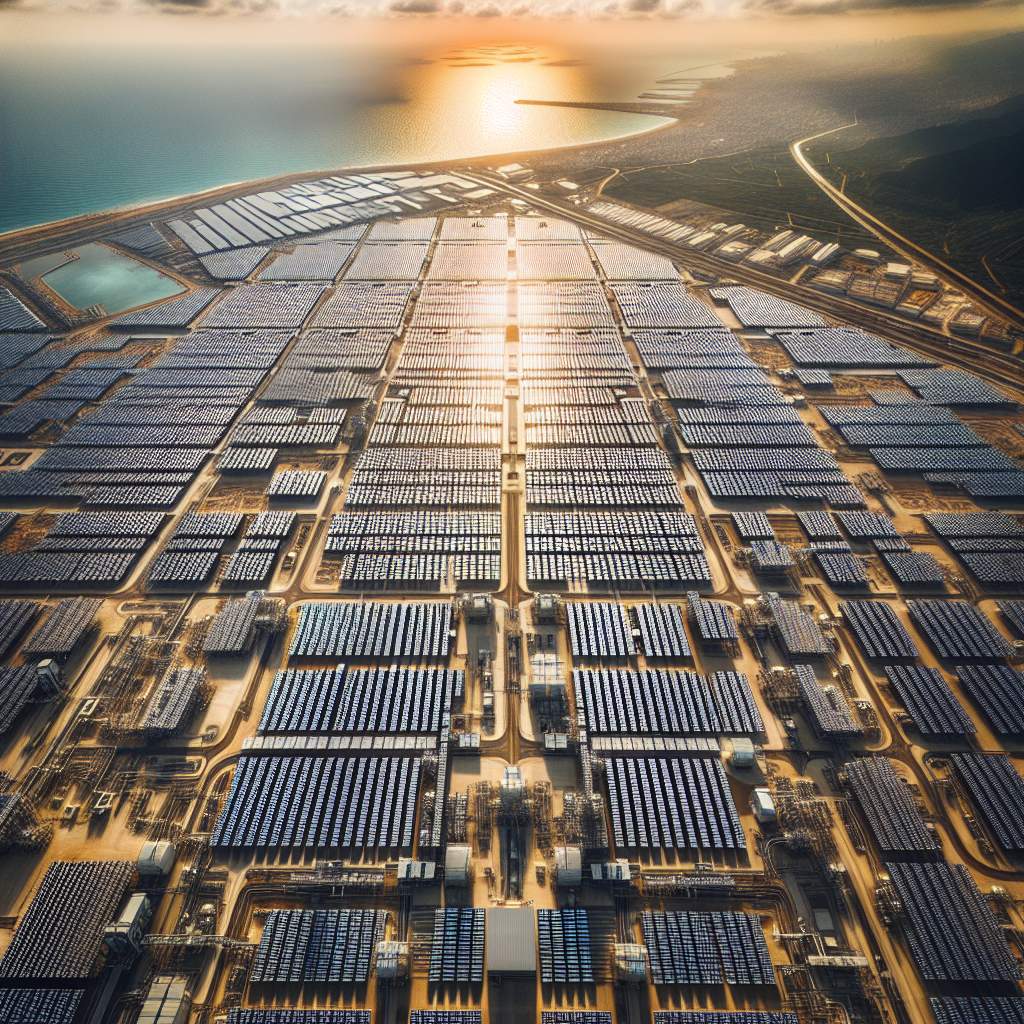
Solar power installations in Lebanon have brought significant economic and social benefits to the country. With major solar projects contributing to the production of clean energy, Lebanon has reduced its dependence on imported fuel and decreased greenhouse gas emissions.
– Solar power has created job opportunities in the renewable energy sector, boosting employment and skill development.
– The introduction of solar technology has improved access to electricity in rural areas, enhancing living standards and supporting socio-economic growth.
These solar initiatives have paved the way for a more sustainable future by diversifying Lebanon’s energy mix and promoting environmental conservation. The long-term advantages of harnessing solar power extend beyond cost savings, as it fosters resilience against volatile fuel prices while mitigating climate change impacts.
Overall, the widespread adoption of solar power
Challenges and Future Outlook for Solar Energy in Lebanon
Lebanon is making big moves in solar power, but it’s not all smooth sailing. With ambitious targets to use solar energy for a bigger slice of the country’s power needs, there are some challenges along the way. Despite this, the future looks bright for solar energy in Lebanon as new technologies and government support pave the way for more sustainable power sources.
Major solar power installations in Lebanon have made significant progress in recent years, with an increase in capacity that has put the country on the map for renewable energy. However, issues like regulatory hurdles and limited grid infrastructure pose challenges to further expansion.
Technological Advancements in Solar Power Systems
Lebanon has been making big strides in solar power, with major installations boosting the country’s renewable energy capacity. The technological advancements in solar power systems have played a crucial role in this progress, making it more efficient and accessible. These developments have allowed Lebanon to tap into its abundant sunlight and reduce its reliance on traditional energy sources. Major solar power projects like the Chamsine Power Plant have showcased how cutting-edge technology can be harnessed to create sustainable energy solutions for the future.
The growing popularity of solar power systems in Lebanon is not just about harnessing clean energy, but also about building a more sustainable future for generations to come. With ongoing advancements in technology and decreasing costs, solar power is becoming an increasingly viable option for meeting the country’s energy needs while reducing environmental impact.
Community Engagement and Awareness Programs
Community involvement in Lebanon’s solar power initiatives has surged, with diverse programs igniting local advocacy. These projects foster environmental stewardship, sparking a shift towards renewable energy. Engaging workshops and outreach events plant the seeds of awareness, nurturing a culture of sustainability. As Lebanon strives to amplify its solar power capacity, these community efforts fortify the foundation for widespread adoption.
Through partnerships with schools and local organizations, these programs educate folks on the benefits of sustainable energy sources. By rallying together, we can empower our communities to embrace eco-friendly practices and pave the way for a greener future.
Conclusion
Lebanon has made great strides in solar power installations, with several major projects contributing to the country’s renewable energy goals. These initiatives have not only reduced carbon emissions but also created jobs and promoted sustainable development. The government’s commitment to investing in solar energy is evident from the increasing number of installations across the country, such as the Chamsine Power Plant and the Beddawi Solar Power Plant. With these efforts, Lebanon is moving towards a greener and more sustainable future.
Solar power installations in Lebanon have significantly impacted the nation’s energy landscape. The advancements in this sector have not only brought environmental benefits but also economic opportunities for the local communities.
Popular Questions
What are the major solar power installations in Lebanon?
In Lebanon, major solar power installations include the 1.2 MW solar farm in Chekka, the 1 MW solar park in Zahle, and the 250 kW solar photovoltaic (PV) system at the American University of Beirut.
How do these solar power installations contribute to Lebanon’s energy sustainability?
These solar power installations contribute to Lebanon’s energy sustainability by reducing reliance on fossil fuels, decreasing greenhouse gas emissions, and promoting renewable energy development.
What challenges are faced in implementing large-scale solar power projects in Lebanon?
Challenges in implementing large-scale solar power projects in Lebanon include policy and regulatory barriers, access to financing, land availability, and grid integration issues.

